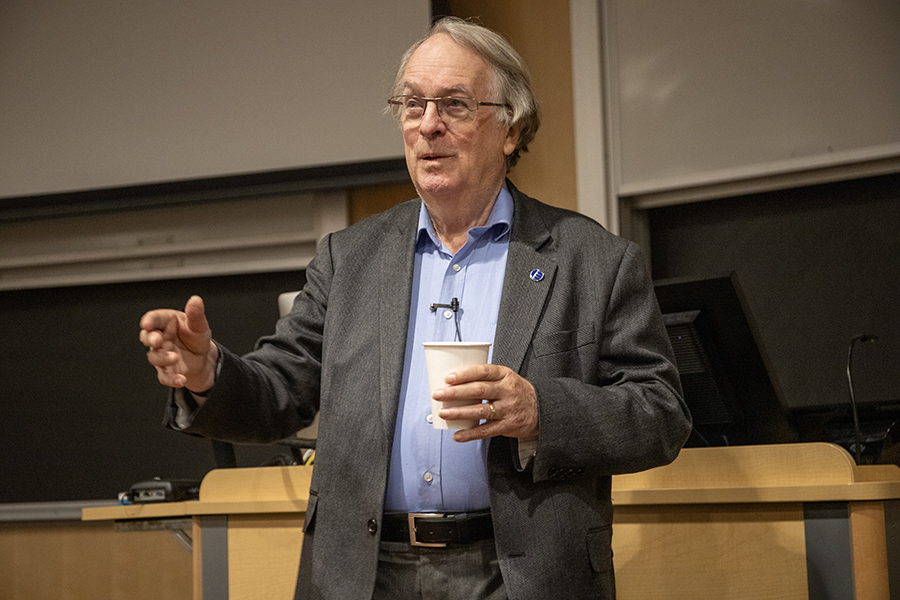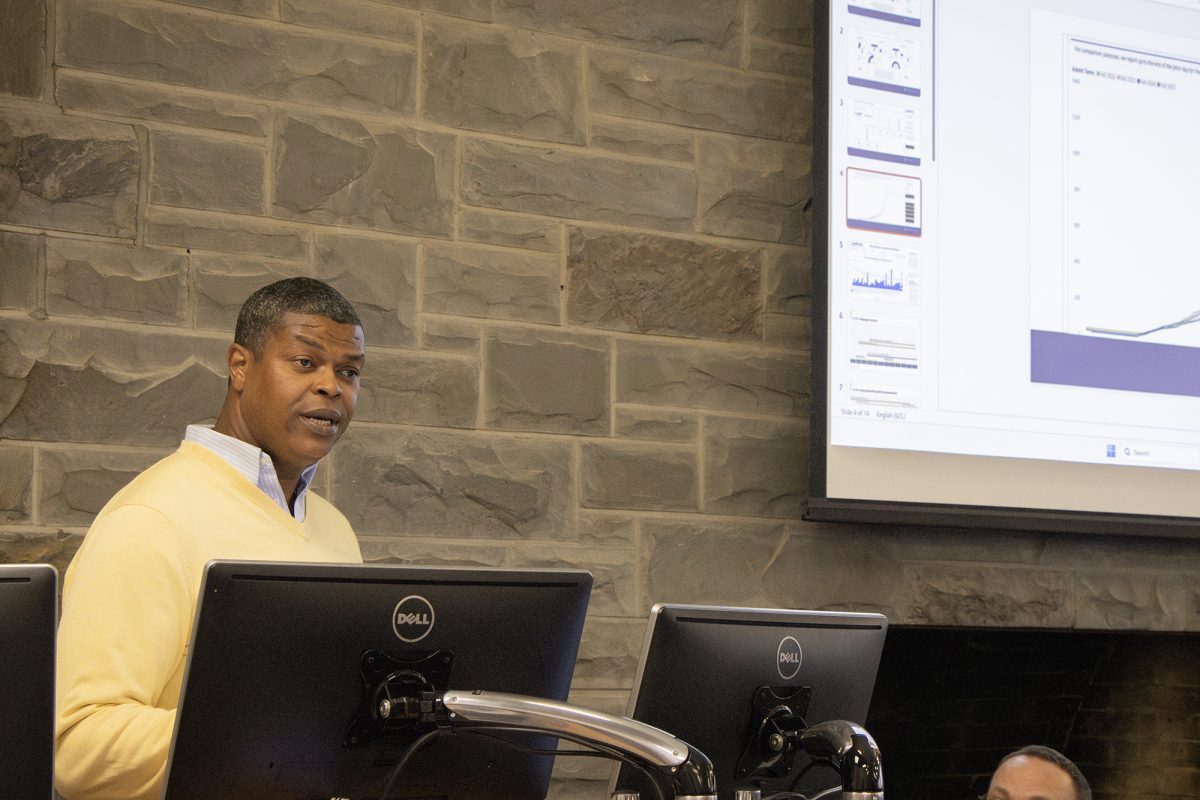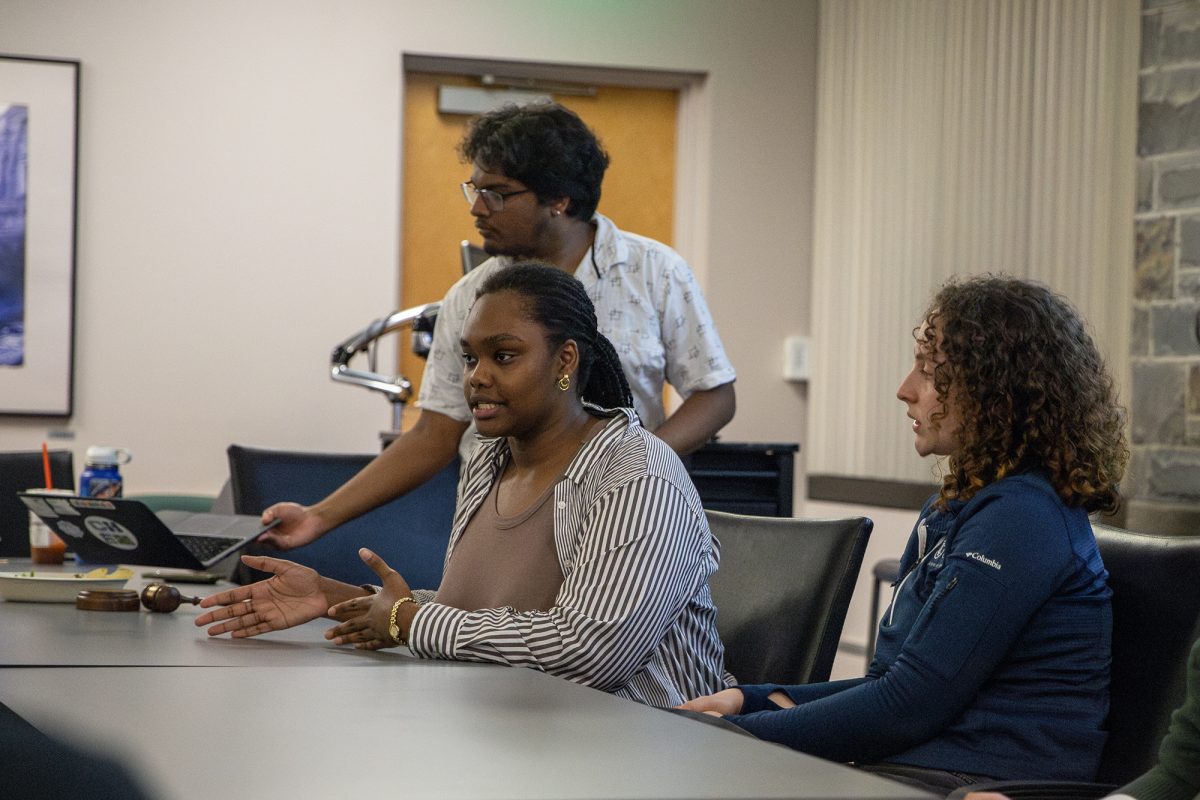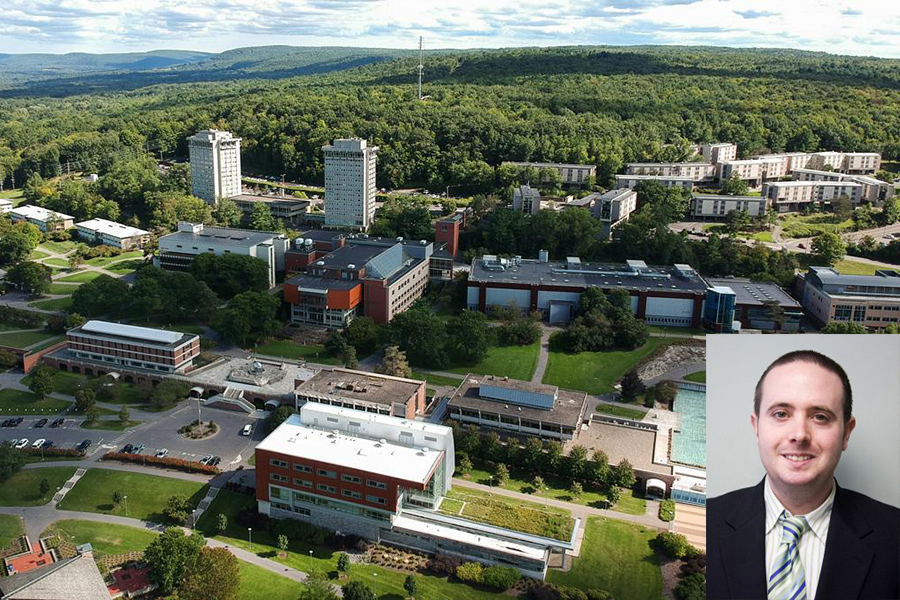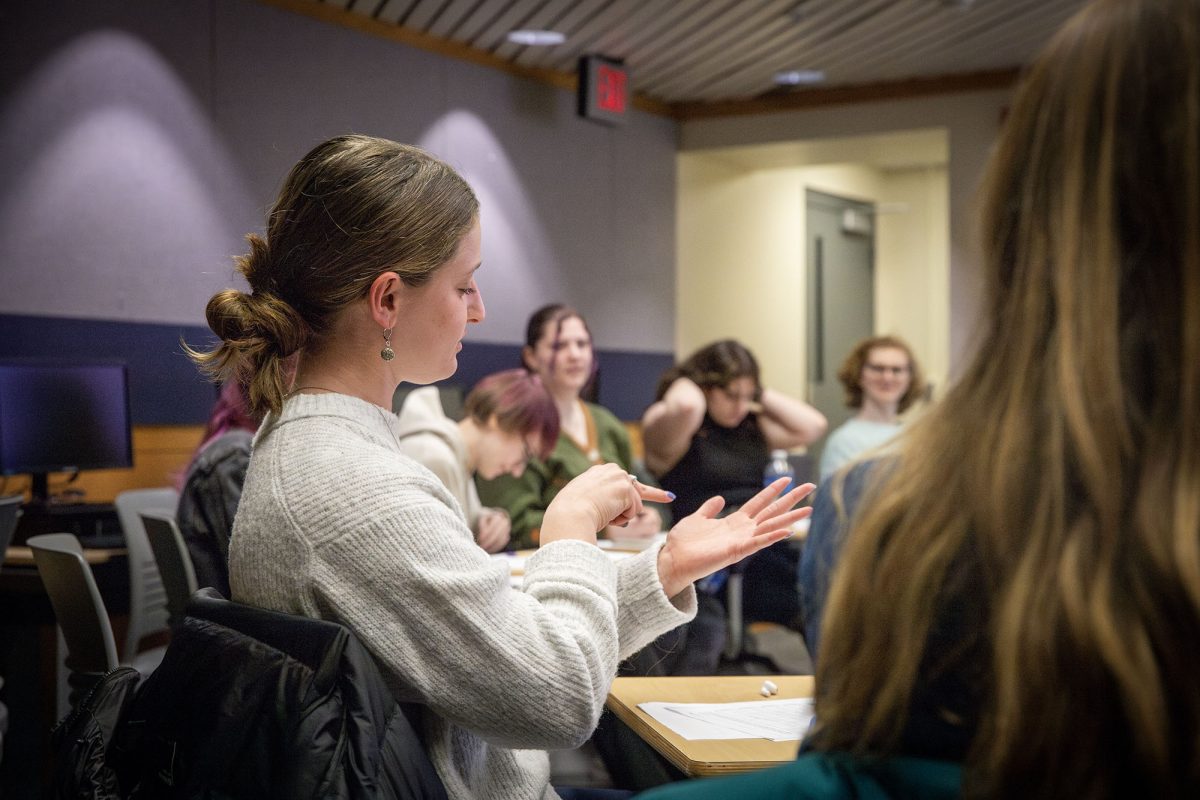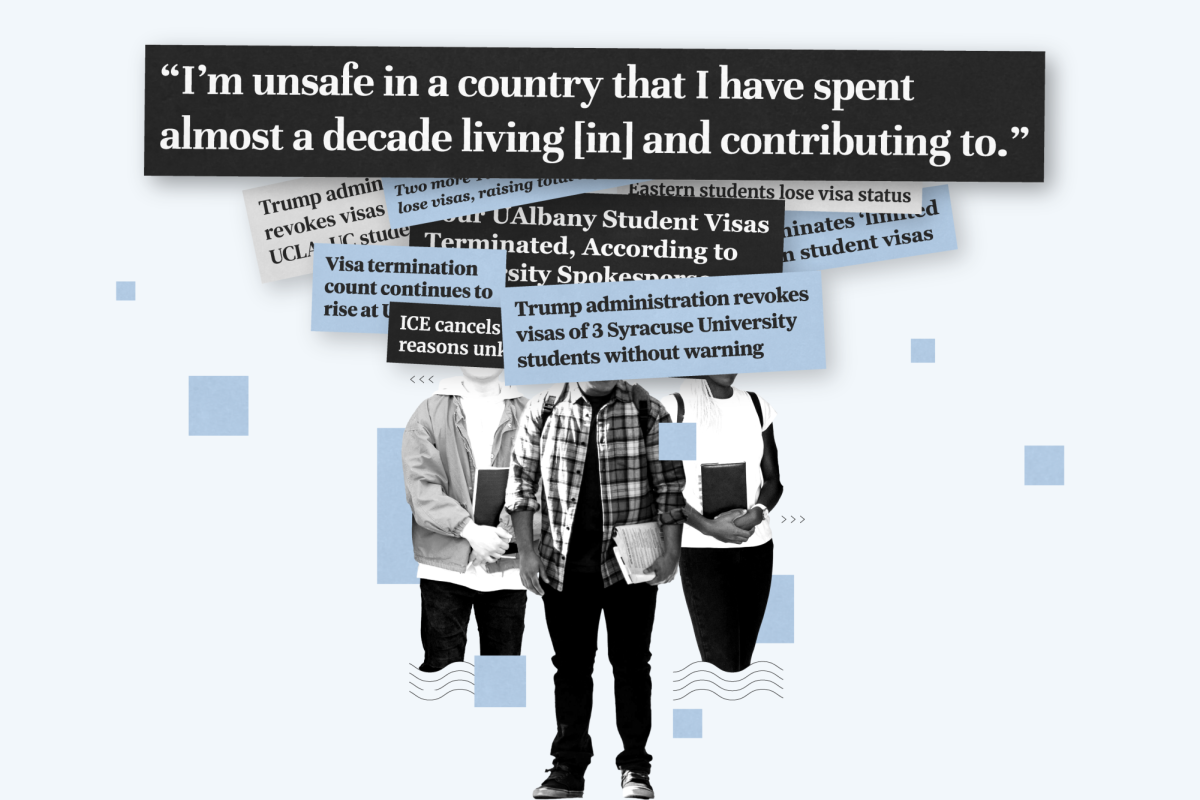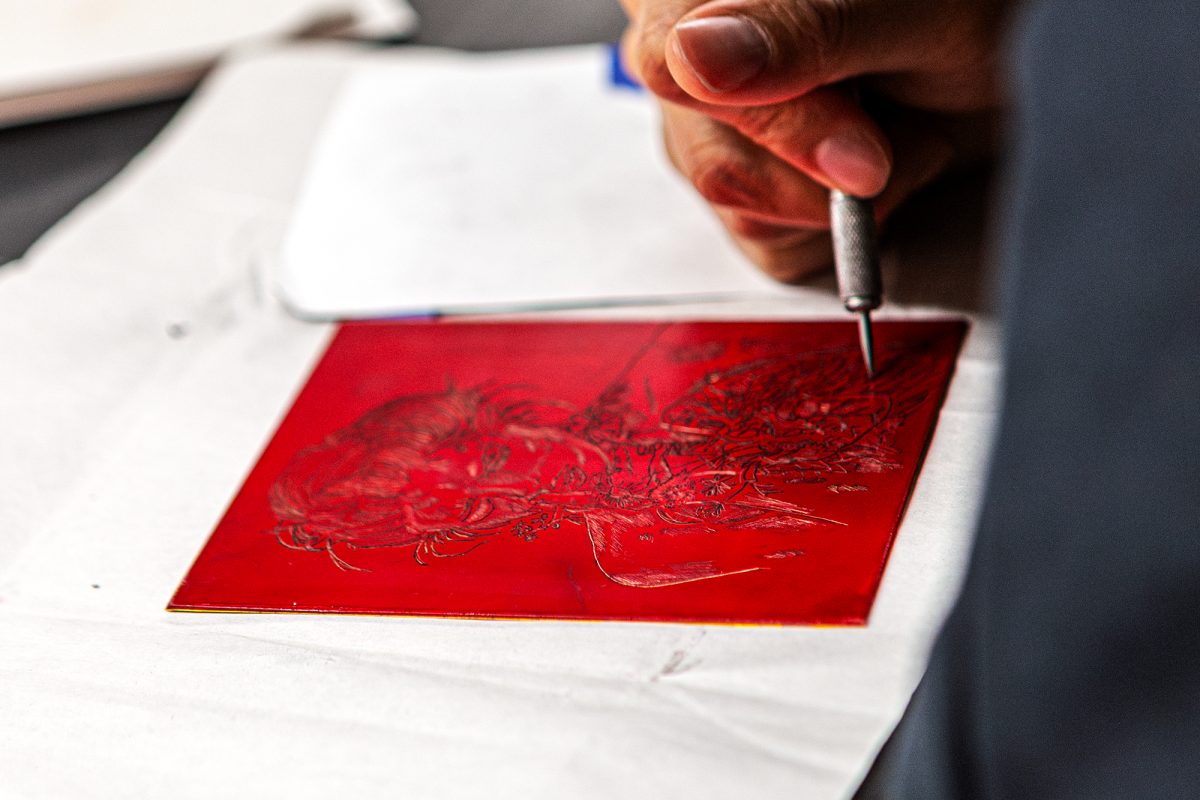Ithaca College’s Department of Chemistry welcomed Stanley Whittingham, a 2019 winner of the Nobel Prize in Chemistry for his work on the development of lithium-ion batteries, to deliver lectures Oct. 19 and Oct. 21.
Whittingham is a professor of chemistry and director of both the Institute for Materials Research and the Materials Science and Engineering program at Binghamton University. Whittingham also serves as director of the Northeast Center for Chemical Energy Storage.
Whittingham received his B.A., M.A., and Ph.D. degrees in chemistry from Oxford University. He has been active in lithium batteries research since 1971, when he won the Electrochemical Society’s Young Author Award for his work on beta-alumina. In 1972, he joined Exxon and discovered the role of intercalation in battery reactions, which resulted in the first commercial lithium-ion rechargeable batteries that were built by Exxon Enterprises.
Whittingham and his collaborators; John B. Goodenough, a professor at The University of Texas at Austin, and Akira Yoshino, a professor at Meijo University in Nagoya, Japan, received the Nobel Prize in chemistry for the development of the lithium-ion battery. The lightweight, rechargeable and powerful battery is used in everything from mobile phones to laptops and electric vehicles. It can also store significant amounts of energy from solar and wind power, bringing new possibilities for a fossil fuel-free society.
At the college, Whittingham gave two lectures; one technical, about the ultimate limits of lithium batteries and how scientists can reach those limits, the other more general, about the role of lithium batteries in the production and storage of renewable energy.
Whittingham gave a general lecture titled: “Renewable Energy, Energy Storage, and Global Climate Change” on Oct. 21, which was attended by about 60 people of all ages. Whittingham discussed in the lecture topics of energy production, energy distribution, energy use and the role of lithium batteries in solar and wind-powered systems. Whittingham also discussed concerns of safety regarding batteries shorting out and causing fires.
Whittingham said humanity has undergone two major disruptions in the last 10 years: One was the communications revolution of phones and computers, enabled by the lithium battery. The other disruption was the COVID-19 pandemic, which highlighted challenges to global supply chains. However, Whittingham said the pandemic proved scientists can solve problems and solve them very fast if needed. Whittingham related this to climate change.
“Now we have climate change and we have to solve that,” Whittingham said. “But it’s much harder to solve that because it doesn’t impact you immediately. If you have COVID, you get sick, you know you’ve got to recover. Climate change is creeping up on you.”
Whittingham said that everyone is going to adapt, whether they like it or not, and that climate change can be controlled and stopped from getting much worse. Whittingham said solar and wind energy are very useful, but questions arise in the storage of the energy.
“If you’re going to use solar and wind, you’ve got to store the energy for use during nighttime. The easiest way of doing that is lithium batteries,” Whittingham said. “But the easiest way of solving many problems is to be more efficient.”
Whittingham said lithium-ion batteries are the most efficient, flexible method of storing energy so far. Whittingham said that five years ago, lithium-ion batteries could be charged 50 times, but today, they can be charged roughly 700 or 800 times. This allows for maximum longevity and efficiency.
Regarding the distribution of energy, Whittingham said governments and organizations are working to find more efficient, homogenous methods of transportation. Whittingham said the production and distribution of lithium-ion should be entirely regional as it would increase efficiency.
“In a lithium-ion battery, it takes about 60 to 80 kilowatt hours of energy to make a one-kilowatt-hour battery,” Whittingham said. “That includes the mining and the shipping because some of these minerals go 50,000 miles from the mine to a finished product.”
Whittingham said he has encouraged national governments to rely on regional production and distribution, rather than using energy to ship batteries around the world.
Whittingham also highlighted changes beyond the scientific findings. Whittingham said science today is done in groups, not as a single person in a lab. In his conversations with companies and governments, Whittingham said workers are one of the main needs of energy and electronic companies.
“In this era, you have to work with the politicians, because in the end, they are the ones who give you the money to do the research and they also give the incentive to people who have the ability to install renewable energy,” Whittingham said.
Following the lecture, Whittingham took pictures with students and answered any questions they had. Whittingham said to The Ithacan he feels the lecture went very well and he enjoyed interacting with students.
“It is important to educate students, to encourage them to continue in STEM, and in particular work in this green energy area,” Whittingham said. “This is an important area, we want to get people into the field and [if] we catch them at this age, we encourage them. Students always need encouragement.”
Hormoz Movassaghi, professor and chair of finance and international business in the School of Business, said the lecture was highly educational considering many who attended did not have the chemistry knowledge of Whittingham. Movassaghi said he appreciated that Whittingham did not present in a pessimistic way.
“Many times these climate change talks focus on the negatives, but it is important being able to see the achievements that have been done, what is doable if we just focus,” Movassaghi said. “In science, we can do everything, and [Whittingham] showed a timeline and showed what has been doable.”
Movassaghi also said he was happy with the turnout of students at the event. Movassaghi said about 35 to 40 students from the School of Business attended the event.
“We teach a course called World of Business, which is the first course that students in the School of Business take,” said Movassaghi. “They learn what business is all about; they learn about marketing, and managing and finance. In this course, we talk about sustainability and this was such a great opportunity to have a Nobel Laureate on campus.”
Andrew Torelli, professor and department chair in the Department of Chemistry, said that having Whittingham on campus was a wonderful opportunity for students to learn about this technology.
“They [lithium batteries] are clearly transforming the way we interact with technology, the way we can stabilize energy use and transportation,” Torelli said. “I think it is great to see how this can continue to benefit society.”


